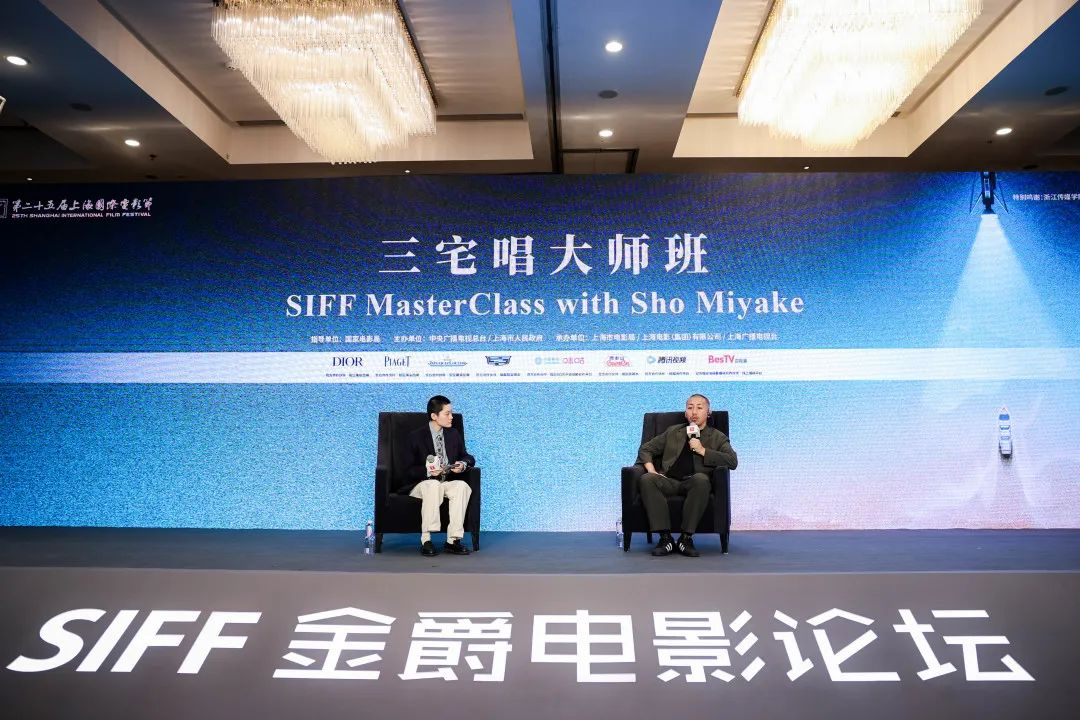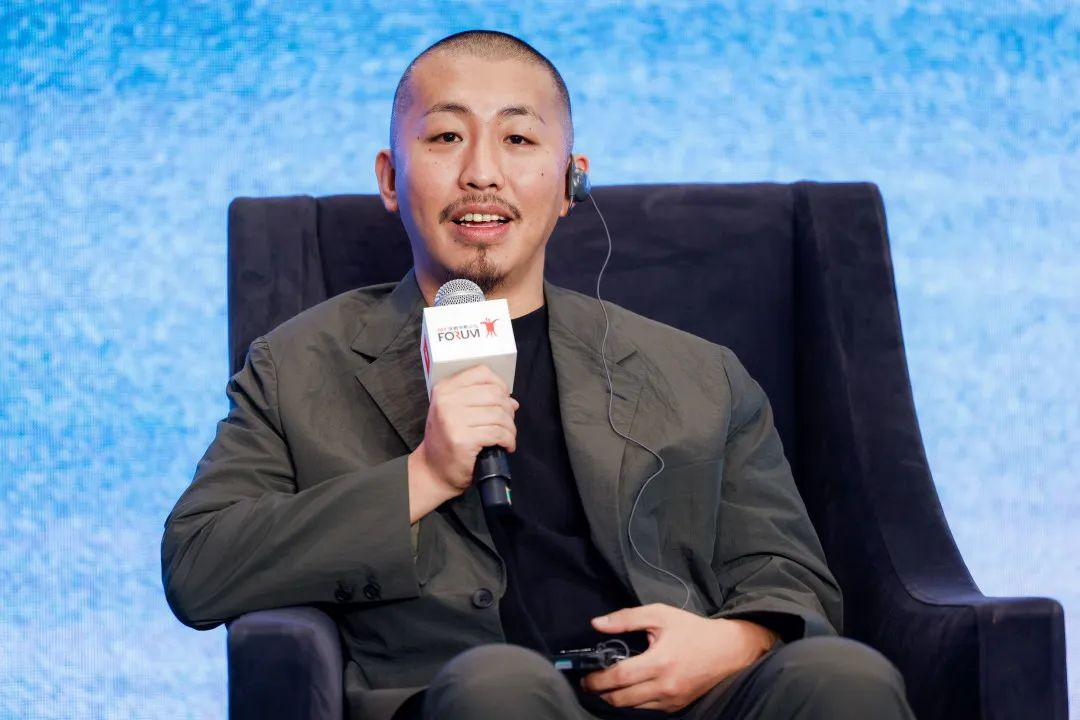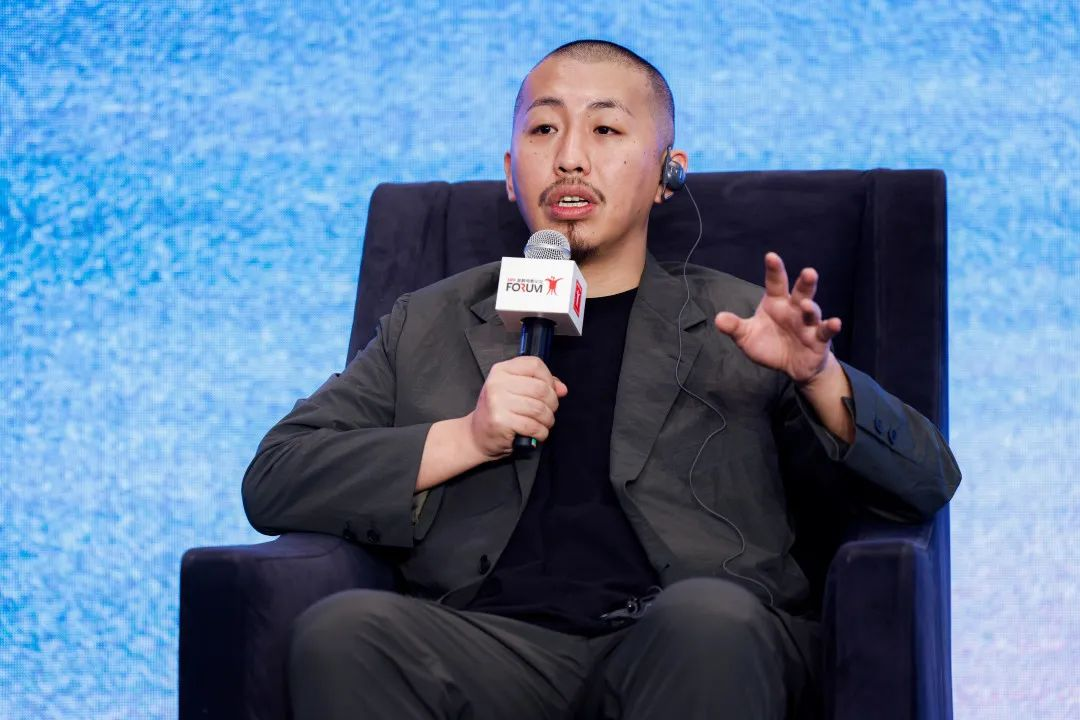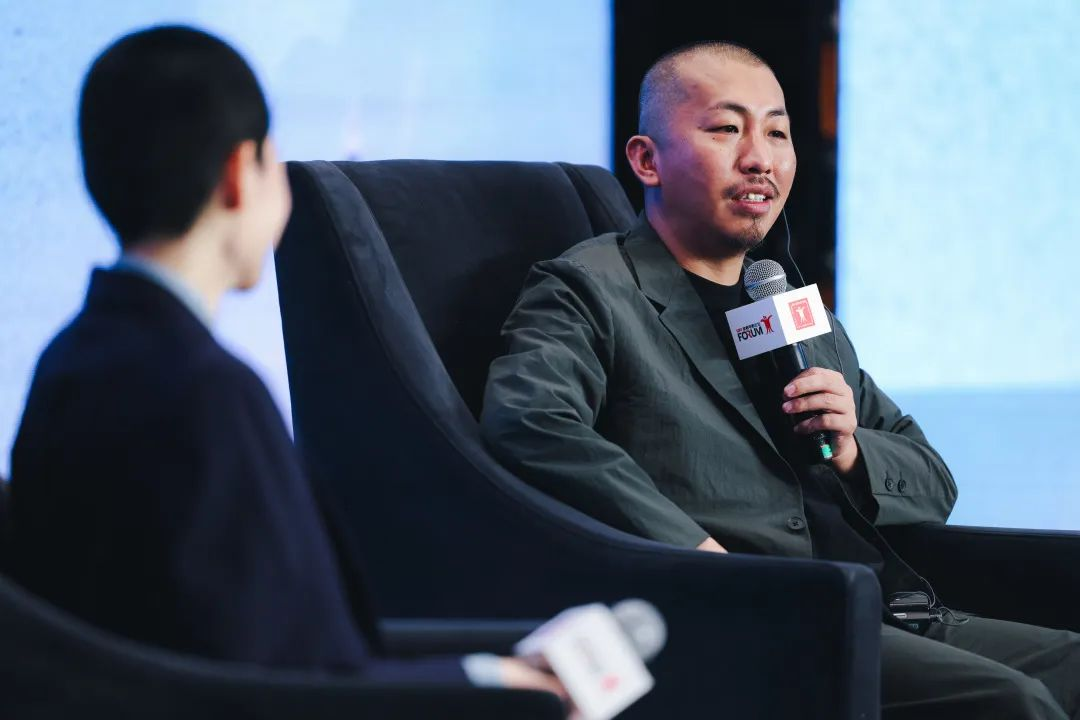MasterClass|Sho Miyake: Even Without Money, Intelligence and Creativity Can Make Films
On June 17th, Japanese director and screenwriter Sho Miyake attended the MasterClass of the 25th Shanghai International Film Festival. His sports-themed drama film, SMALL, SLOW BUT STEADY, was among the lineup of this year’s SIFF VIVA LA FESTIVAL, following its nomination in the Encounters of the 72nd Berlin International Film Festival last year. Film researcher and programmer Shen Nian hosted the event.
Born in 1984, Sho Miyake is currently one of Japan’s most renowned and influential young directors. When asked how young filmmakers can overcome the challenges of limited resources and funding, Miyake suggested a different approach. For example, if you need to film an Earth explosion scene, Hollywood blockbusters would require massive investments to build an entire block or a building and then blow it up; Japanese filmmakers may not have access to such large budgets, but they can create the illusion of an Earth explosion using something as simple as a plastic bottle. Miyake finds this kind of filmmaking intriguing, saying, “Even without money, you can still use intelligence and creativity to make films.”

【Advice】
You Need Down-to-Earth Efforts to Realize Dreams

In his third year of junior high school, Sho Miyake fell in love with filmmaking when he joined the production of the short film “1999.” He later enrolled in a film school and started writing film reviews. After watching films, Miyake would often rush to a café and jot down important shots, allowing him to vividly remember the continuity in the films. Unintentionally, this became his unique way of filmmaking training.
1999 depicted scenes of middle school boys chasing and playing in the school building, with an emphasis on documentation rather than story or plot. Miyake’s subsequent films, such as WILD TOUR and AND YOUR BIRD CAN SING, are also noticeably “documentary-like”, and SMALL, SLOW BUT STEADY includes scenes that have a strong sense of documentation. Miyake mentioned his strong interest in documentary filmmaking and how he collects materials from daily life. “I believe life only happens once, and I don’t know what new and exciting things will come along. So, it’s necessary to think deeply because inspiration emerges from that process.”
When asked about the characteristics of young Japanese filmmakers compared to predecessors like Yasujirō Ozu and Akira Kurosawa, Miyake expressed that it is challenging to summarize in a few words. After all, the history of cinema is constantly evolving and growing, with each director having their own characteristics influenced by their era and social environment. Younger filmmakers’ works may incorporate more subcultures, anime, and other forms of information.
Regarding advice for fellow young filmmakers, Miyake suggested learning to “take it slowly.” Every filmmaker hopes to make their first film a masterpiece, but only a select few achieve that. “In reality, it’s better not to have such big dreams in the beginning. Start with a down-to-earth approach and accumulate experience step by step. Though it may be tough, there is also joy in that journey.”
【On Set】
Always Consider the Actors

The defining characteristic of Sho Miyake’s films is the natural, harmonious, and effortless relationships between the characters, as well as between the characters and the camera. This distinctive feature may stem from the director’s natural and relaxed approach to work. In 2018, Sho Miyake received recognition at the Berlin International Film Festival Forum for his drama AND YOUR BIRD CAN SING. The film’s leading actress, Shizuka Ishibashi, said that Miyake was the first to let go of his ego on set, making the crew feel that “I can do anything, and it’s okay to fail”.
Miyake explained that even for professional actors, performing in front of an audience can be somewhat embarrassing, and everyone tends to conceal this emotion to some extent. As a director, his way to address this is by creating a relaxed atmosphere on set. Miyake doesn’t believe in the necessity of pursuing success on set. Instead, he perceives it as an ongoing dynamic process where “failure is natural and normal”. Miyake wants to share this perspective with actors and the crew, emphasizing that acting is not something to be shy about but rather a joyful experience.
Miyake acknowledged that there are moments on set when everyone feels lost. To address this, he carefully plans the shooting schedule. For example, he keeps the first day of filming relatively light, even if the results may not be satisfying. Then, on the tenth day, he revisits the scenes from the first day that weren’t captured well, allowing the actors ample space and time for adjustments. Miyake sees this as “a way of considering the actors’ needs”.
In terms of dialogue, Miyake also considers the actors’ perspectives and is willing to collaborate with them. For instance, he engages in activities like washing dishes or sweeping trash together with the actors, adjusting the lines during this process. In his view, the body is honest and doesn’t lie. Thus, by observing the actors’ movements, he can find dialogue that better reflects the character and suits the actor’s style. Creating an environment and relationship where actors can feel at ease during the creative process is of utmost importance to the director. During the filming of a romantic scene in AND YOUR BIRD CAN SING, Miyake shared his personal heartbreaking experiences with the actors.
【New Work】
“I Hope to Become Someone Like Keiko Ogasawara”

Sho Miyake’s latest work, SMALL, SLOW BUT STEADY is an adaptation of former professional boxer Keiko Ogasawara’s autobiography, “MAKENAIDE!”. It tells the story of Keiko, a boxer born with hearing impairment, as she faces setbacks such as the closure of her gym and failed matches, ultimately finding strength with the support of the gym’s chairman. The film stars Yukino Kishii and features Yuwa Miura in a supporting role. It premiered at the Berlin International Film Festival in February 2022 and was released in Japan in December of the same year. It was selected as one of the best Japanese films of the year.
Interestingly, SMALL, SLOW BUT STEADY had already confirmed Yukino Kishii as the lead actress before inviting Sho Miyake to be the director. Miyake did not oppose this; instead, he believed it was better for producers to determine the lead actress while securing funding. Since he knew nothing about boxing and had no friends with hearing impairment, he had concerns about accurately portraying such a protagonist in the film. Miyake admitted to hesitating when he received the invitation. However, during the communication with the producers, he became deeply captivated by Keiko Ogasawara’s story and found her to be “an incredibly cool and remarkable woman”. In her autobiography, Keiko Ogasawara candidly revealed her fear of pain despite being a boxer and the moments of doubt and confusion she experienced despite overcoming many difficulties. Miyake was moved by her sincerity. “I hope to become someone like Keiko Ogasawara and to think deeply about her character, so I accepted the job.”
To prepare for the film, Miyake conducted extensive research, including watching other Japanese films that depict individuals with hearing impairments. However, he was not influenced by those works. Instead, he developed a unique style that complemented the lead character’s hearing impairment. Apart from an original song created by Keiko’s younger brother, the film used little background music. For the scenes involving sign language communication, Miyake carefully chose different subtitle formats, such as intertitles of the silent film era, subtitles displayed below the screen, or no subtitles at all. He dedicated considerable effort to the sound effects and deliberately selected various subtitle presentations for different scenes. The goal was to make the audience aware that “these sounds are not naturally audible to me” and to encourage them to focus their attention on characters they may not usually encounter.
Following the film’s release, Sho Miyake received widespread acclaim. One notable acknowledgment came from Keiko Ogasawara herself. As Japanese films typically do not have subtitles, Keiko, being hearing impaired, rarely had the opportunity to watch Japanese films. She expressed great interest in this film with subtitles. Additionally, the Hearing-Impaired People’s Alliance and individuals associated with the organization appreciated Miyake’s approach with the subtitles, which improved the viewing experience for the hearing-impaired community.







